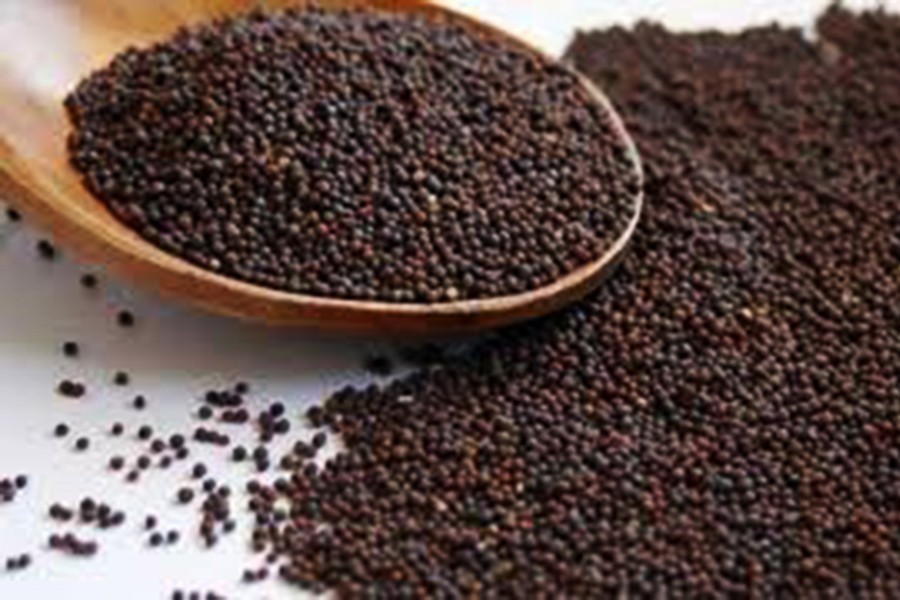Bangladesh can produce an additional 2.6-million tonnes of mustard oilseeds annually by adopting a new crop arrangement.
Agriculture minister Dr Muhammad Abdur Razzaque said this on Saturday.
Cultivating mustard during the fallow period between Aman and Boro seasons, he said, farmers can grow this big volume of mustard seeds on high and mid-high land.
"We can extract 1.04-million tonnes of mustard oil from the seeds, almost half the cooking oil's demand," cited Mr Razzaque.
He was inaugurating a rice harvest ceremony at Dhanbari in Tangail district, said a press release issued by the agricultural ministry.
The minister was speaking as the chief guest at the programme marking the newly released Boro rice varieties-BRRI dhan 89 and 92.
The Bangladesh Rice Research Institute (BRRI) and the Department of Agricultural Extension (DAE) hosted the event chaired by BRRI director general Dr Shahjahan Kabir.
Senior agriculture secretary Md Mesbahul Islam, DAE director general Md Asadullah, Bangladesh Agricultural Research Institute head Md Nazirul Islam and Bangladesh Institute of Nuclear Agriculture head Mirza Mofazzal Islam, among others, also spoke.
If farmers adopt these two rice varieties during Boro season, according to Mr Razzaque, the new crop arrangement could be implemented easily.
He said the country spends Tk 150-200 billion annually to import edible oils, adding that the new crop arrangement might help cut import costs notably.
The newly released rice varieties also yield 25-30 maunds of paddy per bigha when earlier varieties like BRRI dhan 28 or BRRI dhan 29 give 18-20 maunds.
The varieties also mature five to seven days before that of BRRI dhan 29, he stated.
According to the BRRI, the country's highest area of more than 27 per cent follows the crop arrangement as Boro-fallow period-Transplanted Aman.
Farmers usually grow only two crops there.
Through this new crop method, the BRRI said, an additional crop like mustard could easily be grown on such vast cropland.


